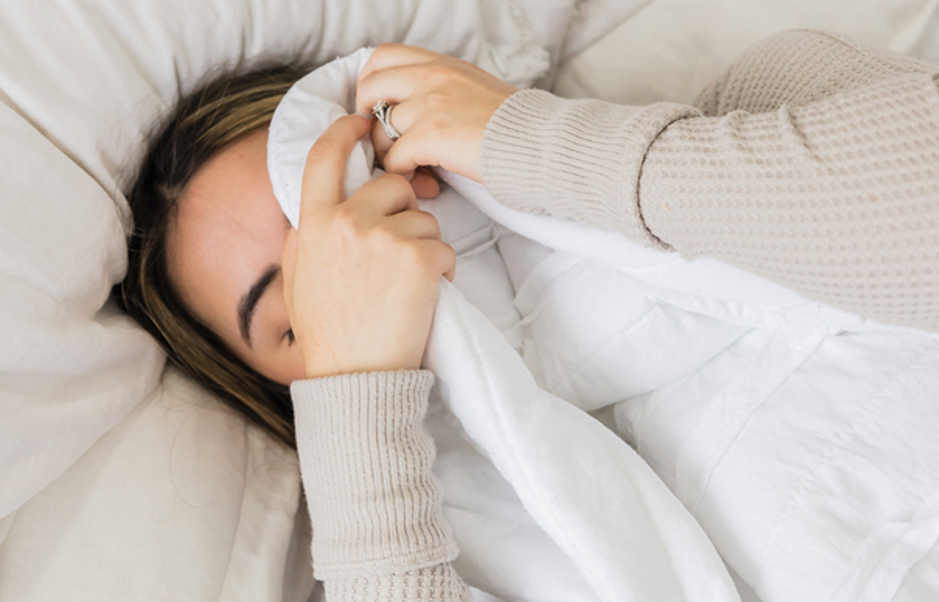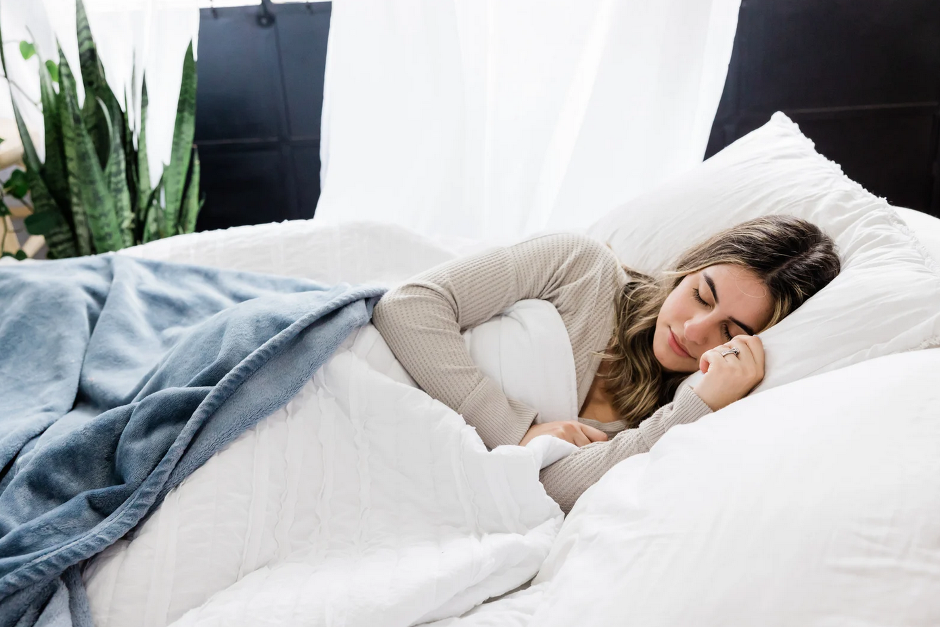It is a common misconception among many people that sleeping excessively is the solution to not being able to sleep at night. This could not be further from the truth. In fact, too much sleep during the day can leave you feeling lethargic and sluggish throughout the next day, not to mention that it can also make it difficult for you to fall asleep at night. So what do you do? Find out what effects lack of sleep has on your body, how it affects your mental health, and what you should do about it.

The long-term effects of sleep deprivation are real and they’re not just an issue of convenience. Sleep deprivation can destroy your mental abilities and it put’s your physical health at a serious risk, too. The science behind the relationship between poor sleep is linked to many different health problems like those related with weight gain or weakening the immune system!
Significant symptoms of sleep deprivation include:
- Excessive drowsiness
- Frequent yawning
- Irritability
- Fatigue of the day
Stimulants, such as caffeine, are not enough to satisfy your body’s deep need for sleep. In fact, they can make sleep deprivation worse by making it harder to get any rest at night. This in turn may lead to a sleepless night cycle followed by ingesting more caffeine during the day just so you don’t experience fatigue brought on from losing sight.

Central nervous system
Your central nervous system is the main information pathway for your body. Sleep is essential for its proper functioning, but chronic insomnia can disrupt the way your body sends and processes information. Lack of sleep also has a negative effect on mental abilities, emotional state and decision-making skills. You may feel more bored or prone to mood swings if you do not get enough sleep; this could be an indicator that lack of sleep may lead to hallucinations (seeing or hearing things that don’t exist). Chronic sleeplessness also increases one’s risk of mania in people with bipolar disorder.
- Impulsive behavior
- Anxiety
- Depression
- Paranoia
- Suicidal thoughts
Immune system
In order to fight against bacteria and viruses, your immune system produces protective substances during sleep. Sleep also ensures that your body will be well rested, which is helpful for the next day’s tasks.

Respiratory Organ
Sleep and respiratory system are closely connected. Lack of sleep can make your existing respiratory illness w
orse, because it can reduce the quality of your sleep. It also increases you risk for developing new infections like colds or flu due to obstructive sleep apnea (OSA). OSA is a common disorder that causes airway obstruction during your normal breathing cycle, especially when sleeping at night. As you wake up from this nighttime interruption in breathing, there is increased chance for more snoring and poorer quality of life. Furthermore, insufficient rest prevents individuals with mild asthma or chronic lung disease from getting their best care while they’re asleep-and may lead to an increase in acute attacks within these populations as well!
Digestive system
In addition to overeating and not exercising, sleep deprivation is another risk factor for overweight and obesity. Sleep affects the levels of two hormones leptin and ghrelin, which control how hungry we are or feel full after a meal. Lack of sleep can also make you too tired to exercise- over time this will lead weight gain as you do not burn enough calories with physical activity nor build muscle mass. Sleep deprivation also reduces your sensitivity towards glucose- leading diabetes or obesity as well if left untreated!

Cardiovascular system
Sleep affects the processes that keep your heart and blood vessels healthy, including those that affect your blood sugar, pressure levels, and inflammation prevention. It is also critical to a body’s ability to heal and repair damage in the cardiovascular system or brain tissues. A lack of sleep puts you at higher risk for developing various conditions like high cholesterol or diabetes mellitus type 2 as well as heart attack or stroke (due to an increased chance of clotting).
Endocrine system
Hormone production needs sleep. To produce testosterone, you need at least 3 hours of uninterrupted sleep every day- which is about the time of your first R.E.M Section (Rapid Eye Movement). Getting interrupted during the night can affect hormone production too, as well as other growth functions like muscle mass and cell repair in children and adolescents.
What happens if you do not sleep?
According to the US, it is estimated that there are 30 adults and 66 teens who regularly suffer from insomnia. Insomnia has some serious consequences on your body – it impacts learning, memory, moods and reaction time. It can also cause inflammation as well as hallucinations among other health risks related to sleep deprivation. Studies show that sleeping less than six hours a night increases the risk of stroke by four-and-a half times compared with people who were silent for seven or eight continuous hours.

Benefits of a good night’s sleep
The best way to avoid sleep deprivation is by making sure you get enough sleep. Follow your age group’s recommendations for the maximum number of hours of sleep, which is 7-9 hours for most adults 18 to 64 years old.
Ways you can get back on track with a healthy sleep plan are:
- Limit naps during the day (or avoid them altogether)
- Avoid caffeine in the afternoon or at least a few hours before bedtime
- Go to bed every night at a set time
- You wake up at a certain time every morning
- Stick to your bedtime schedule for weekends and holidays
- Spend an hour before bed to do relaxing activities, such as studying, meditating, or bathing
- Avoid heavy meals a few hours before bedtime
- Avoid using electronic devices just before bedtime
- Exercise regularly, but not in the evening close to bedtime
- Reduce alcohol consumption
Tired of being awake at night?
Regular exercise is thought to be beneficial for better and more regular sleep.
Studies show that regular physical activity is associated with the prevention of falls in elderly people. A recent study found that moderate aerobic exercise increased sleep quality among participants who exercised at different times during the day, including mornings. If you want to exercise before sleep to improve your fall-risk, morning activities such as brisk walking, or strength training may lead to better blood pressure and more deep sleep than evening workouts would. Evening exercises don’t seem likely to impair overall quality of rest; they will just delay bedtime by an hour or so on average.


